Capegard 500mg Tablet 10s
Capegard 500mg Tablet 10s belongs to the class of medications used in the treatment of certain illnesses, particularly cancer.
Capecitabine undergoes transformation into 5FU, which then acts as a roadblock for a key player in cell division. This roadblock inhibits the production of ThMP, a crucial component for DNA synthesis Without sufficient ThMP, cells cannot properly create new DNA, slowing down their ability to multiply This disruption in the cell's replication process is a key aspect of Capecitabine's efficacy, particularly in the context of treating cancer.
To achieve optimal results, it is essential to follow your doctor's guidance on the prescribed dose and duration Capecitabine can be taken with or without food, but maintaining a consistent daily schedule is recommended.
Common side effects of Capecitabine may include nausea, vomiting, abdominal pain, diarrhea, fatigue, dehydration, eye irritation, constipation, paresthesia, and anemia.It is important to be aware of these potential side effects and inform your healthcare provider if they persist or worsen.
Capecitabine can suppress bone marrow function, leading to decreased production of blood cells Regular blood cell counts are necessary to monitor for conditions such as anemia, leukopenia, and thrombocytopenia. Caution is advised in individuals with preexisting renal impairment, and dose adjustments may be required based on renal function Regular monitoring of renal function is essential for those with kidney issues.
If a dose of Capecitabine is missed, it should be taken when remembered However, if the next scheduled dose is close, it is advisable to skip the missed dose and continue with the regular dosing schedule Taking two doses at once should be avoided Consulting with your doctor for guidance on managing missed doses effectively ensures the appropriate use of the medication and maintains its effectiveness
Similar Medicines
Related Posts

1:15
How Do You Know If You Have a Vaginal Infection? Warning Signs!

1:15
Top Health Benefits of Cinnamon | How to Use It for Better Health!

1:15
Is Your Blood Pressure Too Low? What Are the Best Remedies to Fix Low Blood Pressure Instantly?

1:15
Mala D: How it works, When and How to take Mala D and Side Effects of Mala D!

1:15
Reduce Inflammation Naturally: Best Foods for Heart, Diabetes & Overall Health!
Disclaimer : This information is not a substitute for medical advice. Consult your healthcare provider before making any changes to your treatment . Do not ignore or delay professional medical advice based on anything you have seen or read on Medwiki.
Capegard 500mg Tablet 10s
Prescription Required
Packaging :
strip of 10 tablets
Manufacturer :
Cipla LtdComposition :




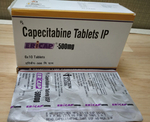

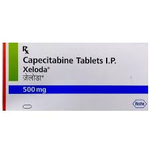
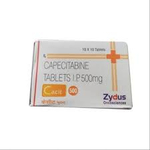

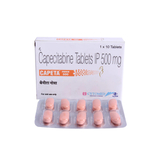
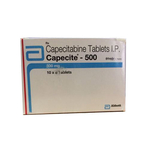














.svg)
